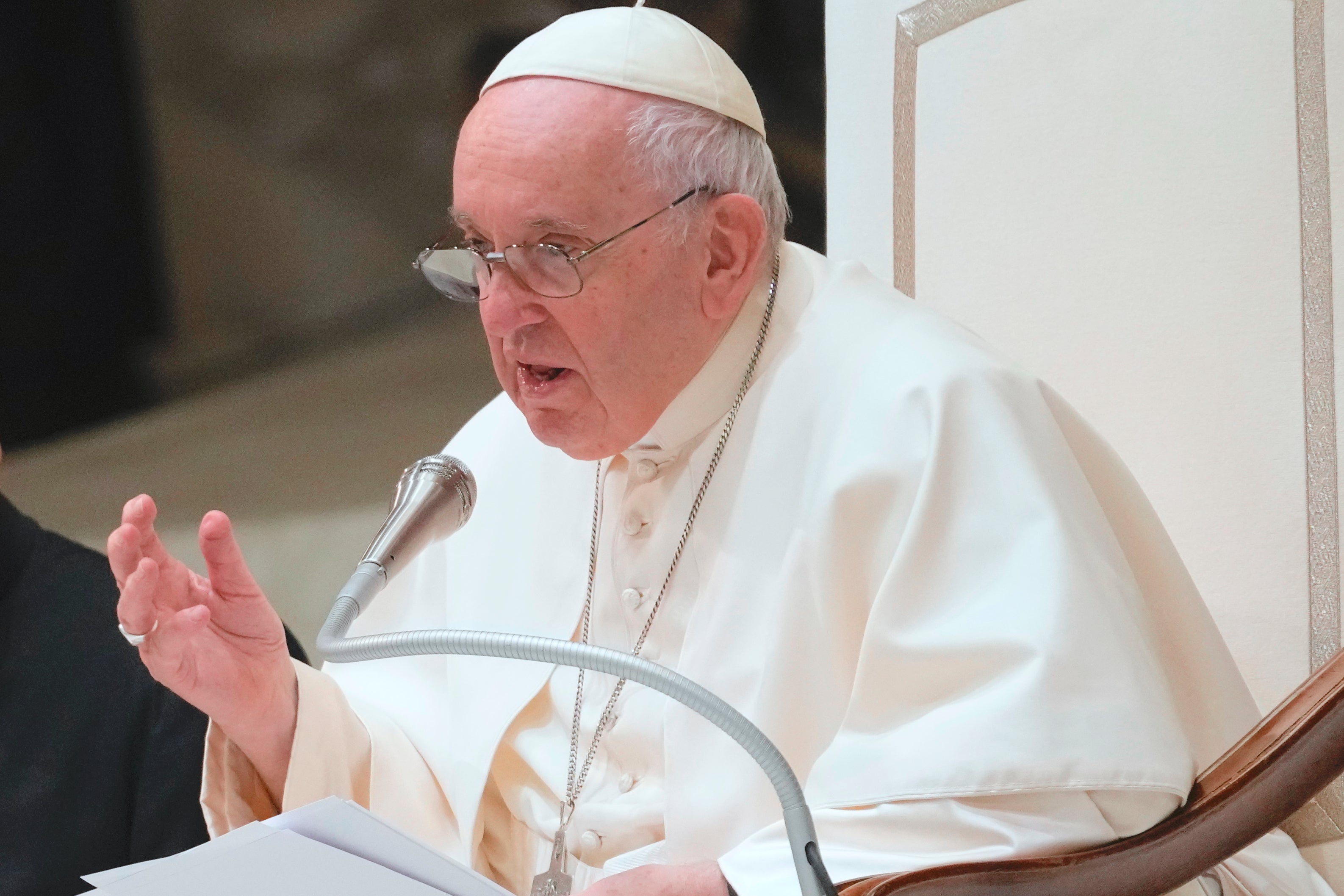Pope returns Greece's Parthenon Sculptures in ecumenical nod
Pope Francis has decided to give back to Greece the three fragments of Parthenon marbles that the Vatican Museums have held for centuries

Your support helps us to tell the story
From reproductive rights to climate change to Big Tech, The Independent is on the ground when the story is developing. Whether it's investigating the financials of Elon Musk's pro-Trump PAC or producing our latest documentary, 'The A Word', which shines a light on the American women fighting for reproductive rights, we know how important it is to parse out the facts from the messaging.
At such a critical moment in US history, we need reporters on the ground. Your donation allows us to keep sending journalists to speak to both sides of the story.
The Independent is trusted by Americans across the entire political spectrum. And unlike many other quality news outlets, we choose not to lock Americans out of our reporting and analysis with paywalls. We believe quality journalism should be available to everyone, paid for by those who can afford it.
Your support makes all the difference.Pope Francis has decided to send back to Greece the three fragments of Parthenon Sculptures that the Vatican Museums have held for centuries, the Vatican announced Friday.
The Vatican termed the gesture a “donation” from the pope to His Beatitude Ieronymos II, the Orthodox Christian archbishop of Athens and all Greece, “as a concrete sign of his sincere desire to follow in the ecumenical path of truth.”
The Vatican thus becomes the latest Western state to return its fragments of the Parthenon marbles, leaving the British Museum among the holdouts.
But the Vatican statement suggested the Holy See wanted to make clear that it was not a bilateral decision to return the marbles from the Vatican state to Greece, but rather a religiously inspired donation. The statement may have been worded in order not to create a precedent that could affect other priceless holdings in the Vatican Museums.
The sculptures are remnants of a 160-meter-long (520-foot) frieze that ran around the outer walls of the Parthenon Temple on the Acropolis, dedicated to Athena, goddess of wisdom. Much was lost in a 17th-century bombardment, and about half the remaining works were removed in the early 19th century by a British diplomat, Lord Elgin.
The British Museum recently pledged not to dismantle its collection, following a report that the institution’s chairman had held secret talks with Greece’s prime minister over the return of the sculptures, also known as the Elgin Marbles.
The Parthenon was built between 447-432 B.C. and is considered the crowning work of classical architecture. The frieze depicted a procession in honor of Athena. Some small bits of it — and other Parthenon sculptures — are in other European museums.